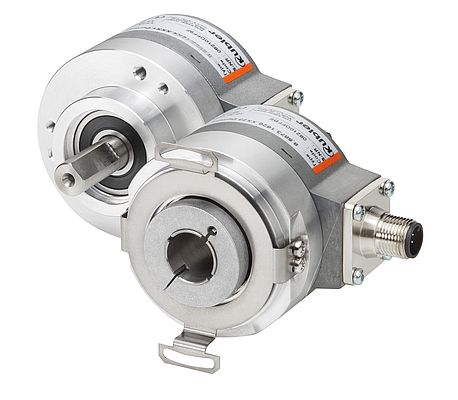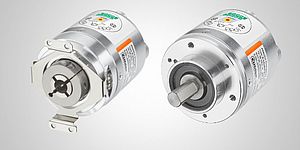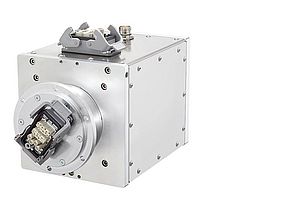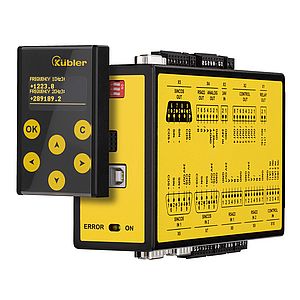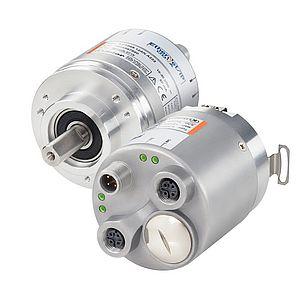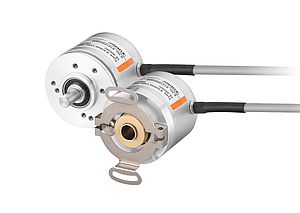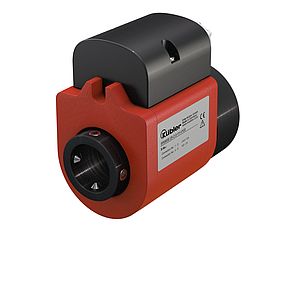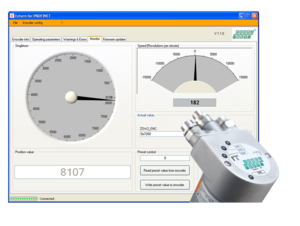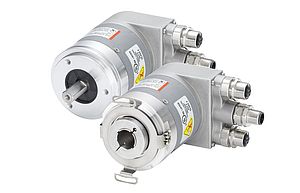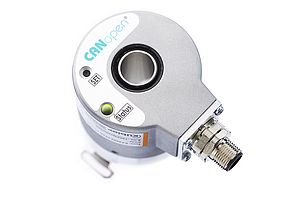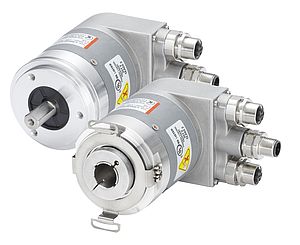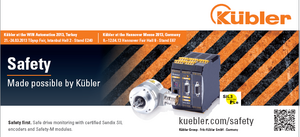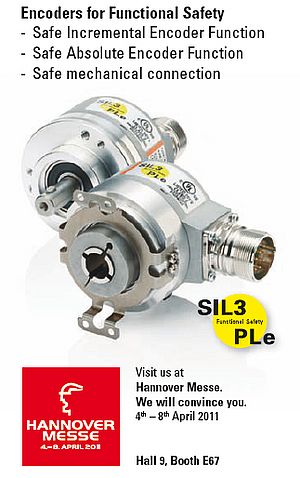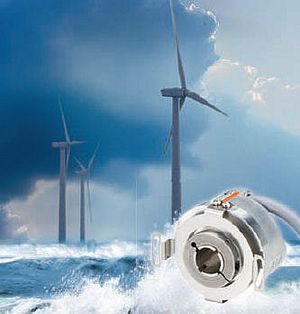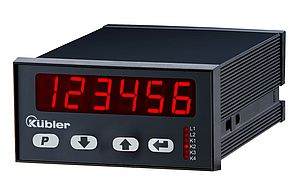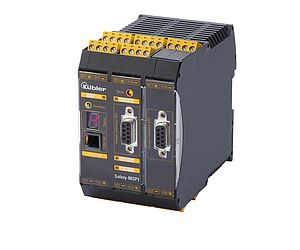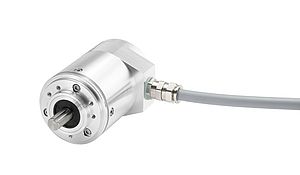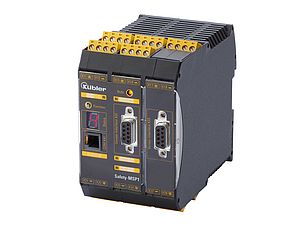Drives technology requires the encoders to measure even smallest movements, creep speed or very slow approach or braking movements with highest accuracy and without dead time or delay. To that purpose, the Kübler encoders Sendix 5814 and 5834 incremental with Sin/Cos interface provide highly interpolable Sin/Cos differential signals with U = 1 VSS. These sine encoders perform this task using two Sine/Cosine signals offset by 90° with respect to each other, from which the information required for a quasi-continuous control behaviour can be derived. Thys way, even small rotary movements produce continuous rotational speed and position signals. Thanks to the interpolation, the subdivision by the control of the sinusoidal curve produces a very high resolution that, thanks to the good signal quality of the Sendix encoders - depending on the processing electronics used - can be interpolated up to 16 bits. So, a sine encoder with 1024 signal periods per revolution (11 bis) supplies the high accuracy of about 270 million measuring steps per revolution. A value that virtually predestines the Sin/Cos encoder for motor feedback applications.
The interpolation has further advantages: the Sin/Cos encoders are resistant against interferences and have only little requirements as regards the input circuit of the control electronics since, due to the interpolation of the sine signals, low transmission frequencies of about 400 kHz for 2048 signal periods are ensured between the encoder and the control device. This is true also for high rotational speeds up to 12,000 RPM. Since the sin/cos signals allow defining the rotational speed and the position, there is no more need for an additional tachometer; the power supply is 5 V DC or 10 - 30 V DC.


